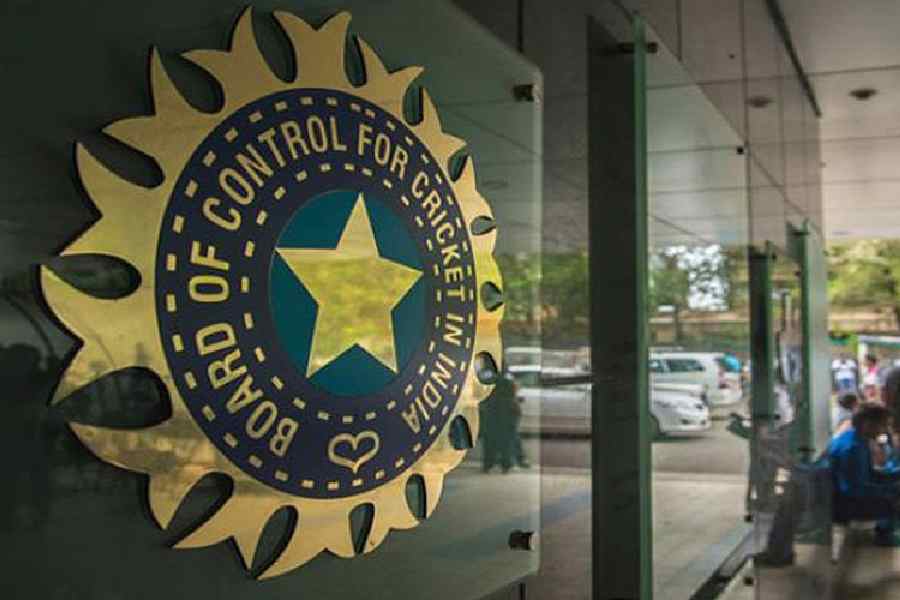At an impromptu media conference at the end of its AGM in Mumbai last October, the Board’s PR team asked all journalists to surrender their cell phones and notebooks so that nothing could remain official. The operation was carried out in such a swift and hushed manner that none of those present got time to react.
The new set of BCCI office-bearers, led by president Roger Binny and secretary Jay Shah, had promised clarity and transparency in their functioning. What transpired in the next few months has portrayed the world’s richest cricket body to be in a muddle where most of the members are unaware of the happenings and the power of authority has been restricted to a select few.
Routine information like a player’s injury or mode of treatment is made known to the media officially long after all details are out in the public domain through various other channels. Even routine interactions with the chief selector have become a forgotten custom.
That the Board hasn’t cared to appoint a chairman of the selection committee four months after Chetan Sharma’s resignation is a true reflection of its plight. Shiv Sunder Das, the most experienced among the four members, has been continuing in an interim capacity.
It will not be surprising if the BCCI hurriedly decides to select the chairman following the debacle in the World Test Championship final (WTC). Amid calls for transition and phasing out of the old guard keeping in mind the next two-year WTC cycle, the need to have a seasoned pro in the hot seat is indispensable.
An Anil Kumble or a Virender Sehwag would be perfectly suited to guide the team management in such a period, and if needed override the captain or coach’s views. The role demands immaculate planning, besides undertaking strict measures and bold steps to ring in the desired changes. The virtues of patience will also be needed since instant results are not guaranteed.
A Yashasvi Jaiswal or a Tilak Varma will take time to get used to the demands of Test cricket but the guidance of a Virat Kohli or Rohit Sharma will be of great value. The combined experience of Das, Subroto Banerjee, Salil Ankola or Sridharan Sharath would come nowhere near Rohit, leave alone Rahul Dravid, and it is natural that they will be weighed down by the stature of the coach or the captain.
Since the implementation of the Justice RM Lodha reforms and the new BCCI constitution, the conflict clause has ruled out cricketers of repute who have already been employed as a commentator or in some other capacity. While the Board went all out to get the office-bearers’ tenure extended, there was no attempt to dilute the conflict clause for former cricketers.
The chief selector’s post carries an annual remuneration of Rs 1 crore and most of the players don’t find it lucrative enough. It wouldn’t be much taxing for the Board to increase the salary by a few folds to make it attractive and lure the best in the business.
Several former players are of the view that the chief selector’s position must be on a par with the head coach so that his voice carries weight. How else would one be able to overrule a stellar team management when it comes to picking a player?
Would it have been possible for the team management to ignore Ravichandran Ashwin’s claims at The Oval if a former captain was the chairman of the selection committee? Or could Rohit have gone ahead with the decision to field first which reflected the team’s defensive tactics and fear of losing?
Unlike Australia, a national selector travelling with the team hasn’t been a part of team meetings since the Ravi Shastri-Virat Kohli era. The practice though had been followed when Kumble was in charge. At best a trip to England would be an add-on perk for the current selectors. Do they have the power or enjoy the status to challenge a Dravid?
“Discussions do bring value to the table. Meaningful conversations have always brought about new ideas. It can be enlightening and helpful in unearthing talent collectively. There is no room for egos where national interest is concerned,” a former national selector said.
Things would have been different had the chief selector’s role been on a par with the head coach. Not attributing the same stature to the two positions does suit the people in power as enforcing radical changes to the system wouldn’t be easy.
With the ODI World Cup less than four months away, the clamour for an ICC trophy will only grow. The loss in the last T20 World Cup had shown that the team wasn’t suited to the changing needs of the format. Still, the BCCI has dilly-dallied to ring in the changes when it’s almost a given that Hardik Pandya will be the captain.
The chief selector needs to be of stature and must show character to raise the red flag. He has to show the courage to question the team management for their faulty assessments and strategies. Most of India’s failures in the ICC tournaments can be attributed to wrong team selections. The BCCI should break the ice to make the position of selection committee chairman meaningful.











